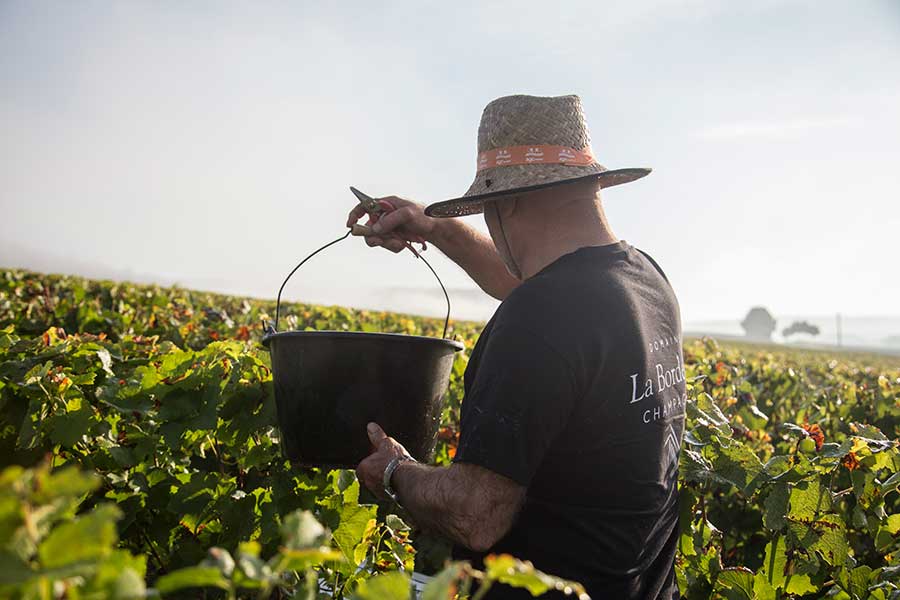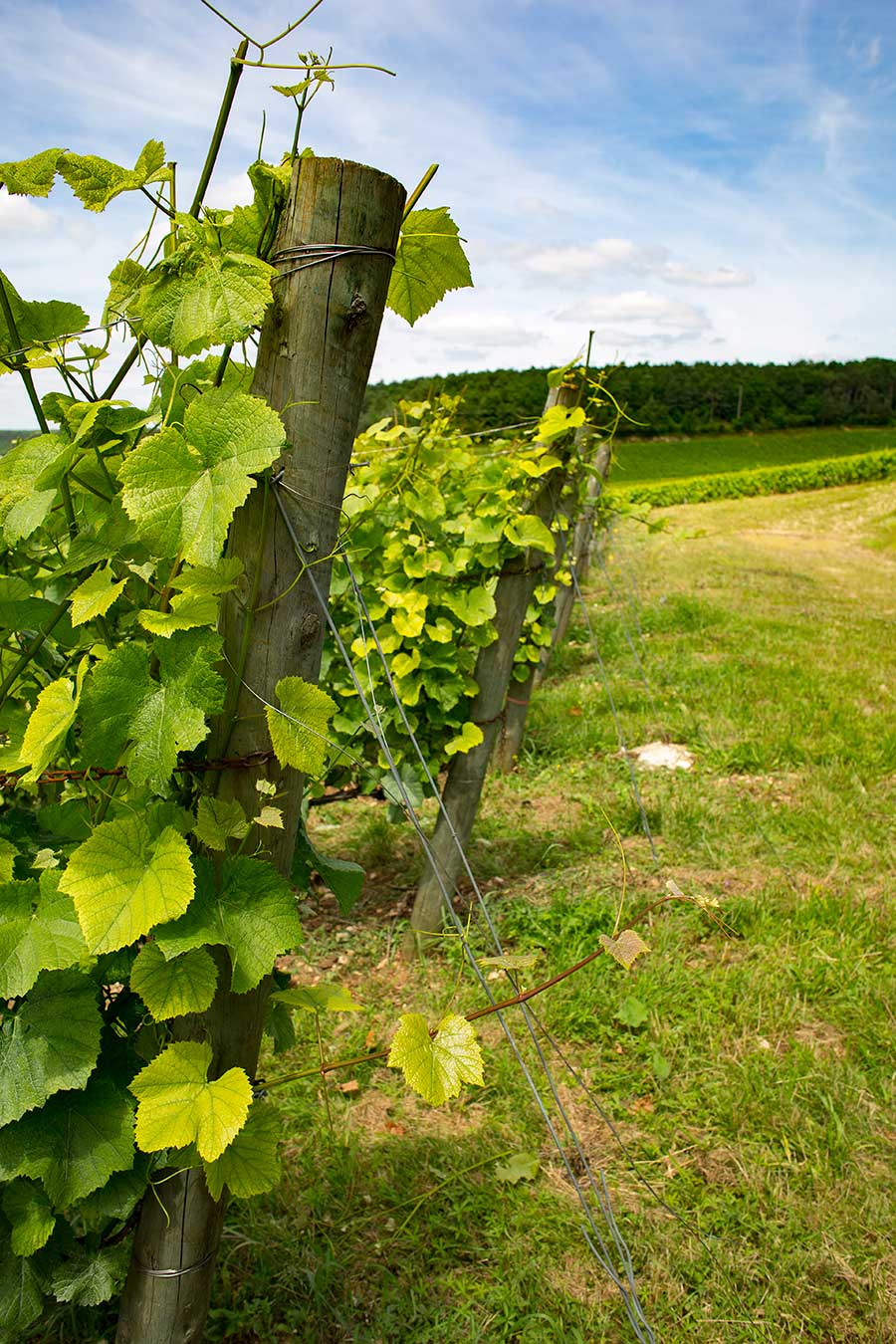Vine work: respect for the grape above all else
The average age of the vines on our domain is about 30 years. We grow four grape varieties: the three major varieties of Champagne (Pinot noir, Chardonnay, Pinot meunier) and Pinot blanc, the subject of a clear revival of interest in the Côte des Bar. The range of rootstocks is large, the geological diversity and exposure of our plot of land lets us carry out a large number of trials”, says Simon, happy to be able to compose cuvées inspired by this terroir.
In order to take advantage of the “aromatic integrity of the picked fruit”, at harvest time, the grapes are pressed very quickly. “They only travel a few kilometres and are never left waiting on the quay,” says the young winegrower, believing that it is the press – and its availability – that should guide the operations during the harvest.
In the winery, a tool has been designed to isolate as much pomace as possible. “We can isolate about twenty plots, which then gives us the possibility of creating single-cellar cuvées” The house’s Extra Brut Rosé Douce Folie and Coteau Champenois are very characteristic examples of this desire to produce limited editions.

Currently 1.5 hectares of the property is reserved for the production of Domaine La Borderie wines, i.e. a production of around ten thousand bottles. The other grapes and wines are intended to supply cooperative customers and houses.
The range: champagnes with a regional identity, true gastronomic wines.

For Simon and Marie Normand, who learned all the winegrower’s motions from their parents and to cultivate respect for the vines inherited from their forefathers, wine can only be the extension of the meticulous work accomplished in the plots over the seasons. All have their own characteristics and the grapes from these vines reveal particular aromas linked to the type of soil and the grape varieties used, some of which have been planted for several decades.
“A vineyard has a unique history and at Domaine La Borderie we have all been thinking about the identity traits of each of the plots of land cultivated to produce wines with a logic of very thorough plot selection. We think in terms of terroir and above all micro-terroir”, explain the brother and sister. As purists, they are concerned to know their grapes in the smallest details of their expression in order to conceive the blends that, in their eyes – and in their nose and mouth, too- will produce the best wines. Gastronomic wines from the regions!
Jean-Louis and Odile have turned their children into “aroma seekers” and they accompany them in this quest for identity, which has already given birth to some fine vintages. The gastronomic wines thus produced are intended for a target group of enlightened wine lovers. This is confirmed by the great cellar masters who are invited to take part in the domain’s tastings, to discover the gustatory harmonies offered around food and wine pairings without showing off, focusing just on the essential. For the Normand family in unison, “wine should be a moment of accessible pleasure”.
